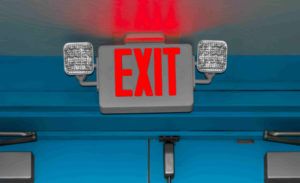When you start looking at businesses to buy, you will probably have a list of questions you’ll want answered by sellers. The typical questions, like “why are you selling” and “how long have you owned the business” might seem pivotal.
However, there are a handful of more unconventional questions you should be asking that you may not have considered. Here’s a few:
“Why now?”
The “why are you selling” question is an important one, but another very important question needs to be based on the timing of the sale.
Sometimes the answer to both questions is the same – like in the case of a seller who is putting the business on the market because a sudden health emergency will prevent them from remaining a functional owner. This scenario would not indicate issues with the business, rather personal issues with the current owner.
If there is not an impending emergency forcing the sale, then the answer to the “why now” question will be critical.
If a business appears in good shape, then the “why now” answer should be something along the lines of “well, we’ve reached pivotal markers in the long-term exit plan for this business, and we are ready to move on to other ventures.” The seller in this situation decided long ago on the future sale of the business, and has been readying the business in that time.
If the answer to the “when did you decide to sell” question is “well, we decided recently” – then you should dig much deeper into the business, as a sudden urge to jump away from a perfectly good business should seem suspect.
“How did you come up with your listing price?”
For a seller the evaluation of their business can be tough. They’ve invested countless hours, large amounts of money and tons of energy – and placing a monetary number on something so life encompassing can feel nearly impossible.
A listing price should be based on realistic terms, like the money the business generates – not on the emotional value or the sum of every penny the seller has ever spent on the business.
When looking at businesses be aware that some sellers find brokers who are willing to list the business for whatever the seller wants (no matter how ridiculous) just to have the listing. The prices of these businesses will be highly inflated and there will be no justification.
“If you had unlimited resources, what changes would you implement for growth?”
Sometimes businesses remain stagnant and have limited growth because of lack of funds, sometimes it’s simply an apathetic and burned out owner. Any seller who has an eye on the future and an eye on growth will already have considered this question and have an immediate answer.
If a seller hesitates or can’t come up with a reason, then they may not have been conducting their business with an eye on the future. Not good news for a new owner taking the wheel unless it means it can become a point of negotiation.
When you are looking for a business to buy, don’t just ask the basic questions. Questions like the ones above delve deeper into the motivations and actions of a seller and can tell you volumes about a business. Talk to your business broker about the kinds of questions you can ask that will get you better information. These great questions will be pivotal in those critical first conversations with sellers.
Are you a business buyer who would like to know what other questions you can ask sellers to delve deeper? Would you like to know more about what answers to these types of questions might tell you? Ask us! Please feel free to leave a comment or question here, and we will be happy to help.
Michael Monnot
941.518.7138
Mike@InfinityBusinessBrokers.com
5111 Ocean Boulevard, Suite E
Siesta Key, FL 34242
www.InfinityBusinessBrokers.com










